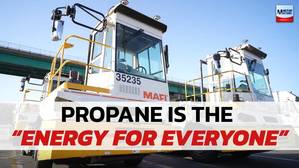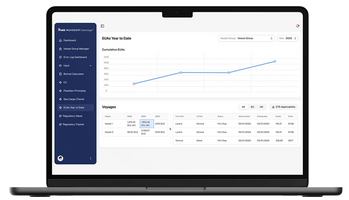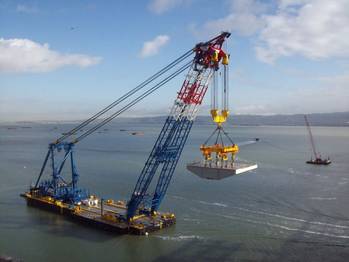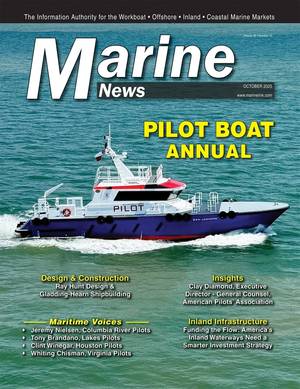Sustainable Fuel Chicken and Egg Redux. Maybe Some Ports Can Fix It.

In a recent sustainable fuel panel discussion, I once again found my self sucked into the sustainable fuel chicken and egg conundrum.I have discussed it before; shipowners will not buy ships that use a fuel for which no viable supply chain exists and fuel suppliers will not develop supply chains for which no buyers exist.In general, it is very difficult to break a chicken and egg conundrum, except through a direct directive or through, often very large, subsidies.Often direct directives leave the problem solution to the market.
Training Seafarers on Alt Fuels Focus of IMO
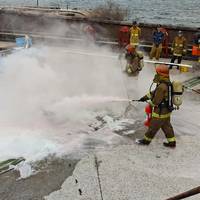
The International Maritime Organization (IMO) is stepping up efforts to prepare seafarers for shipping’s energy transition, to help ensure personnel are properly trained to work safely on ships using zero or near-zero emission fuels, in line with the IMO's revised strategy to cut greenhouse gas emissions from ships.IMO has issued Generic interim guidelines on training for seafarers on ships using alternative fuels and new technologies (STCW 7/ Circ. 25). The guidelines set out…
Sanmar Launches Third Electric Tugboat
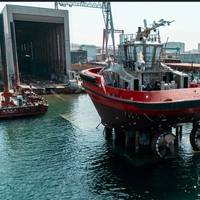
Sanmar launched the third of four fully electric ElectRA Series tugs that it is building for BOTAŞ, Turkiye’s state-owned crude oil and natural gas pipeline and trading company.All four of the tugboats are based on the ElectRA 2500SX design from Canadian naval architects Robert Allan Ltd. The first was launched on July 5 this year, and the second on August 9.ElectRA Series tugs are exclusive to Sanmar and are the result of the company’s ongoing collaboration with Robert Allan Ltd and battery provider Corvus Energy to build a new generation of eco-friendly low and no-emission tugs…
Trump Administration Drops Gauntlet on UN Fuel Rules, Threatens Tariffs
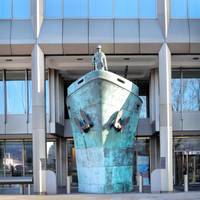
The United States has told countries to reject a United Nations' marine fuel emissions-cutting deal or face tariffs, visa restrictions and port levies, U.S. and European officials and sources told Reuters.The Trump administration is looking to boost U.S. economic might, including by taking a bigger role in global shipping, and has used tariffs as a weapon to extract better terms from Washington’s trade partners.In April, countries struck a draft agreement through the U.N.'s International…
Ship Fuel Quality Holds Steady, says LR Report
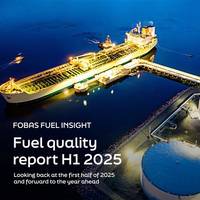
LR’s latest FOBAS Fuel Insight report highlights broadly steady fuel quality with particular issues around high sediments and chemical contamination, and an increased use of biofuel blends with developments in energy-content measurement.Global bunker fuel quality remained resilient in the first half of 2025 despite growing fuel diversity and tightening environmental regulation, according to Lloyd’s Register’s latest FOBAS Fuel Insight report. The findings highlight how improved testing…
Alternative Fuel Vessels Orders Continue to Grow Despite Slowing of Overall Newbuild Market

Ordering of alternative-fueled vessels is continuing to grow in 2025, despite a slowdown in the overall newbuild market. According to data from DNV’s Alternative Fuels Insight (AFI) platform, new orders for alternative-fueled vessels reached 19.8 million gross tonnes (GT) in the first six months of 2025, exceeding the 2024 figure by 78%. This marks a shift in capital allocation, as shipowners increasingly prioritize future-ready assets in response to regulatory pressure, fuel availability…
Singapore Ship Bunker Sales hit 16-month High
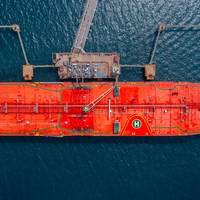
Marine fuel sales in Singapore recovered to hit 16-month highs in May, official data showed on Monday.Volumes at the world's largest bunker hub for ships totalled 4.88 million metric tons, up 10.8% month-on-month and 1.1% higher year-on-year, according to data from the Maritime and Port Authority of Singapore (MPA).The uptick emerged as more vessels arrived in Singapore for container movements and bunkering."Container throughput is at the highest in the year to date, likely due to front-loading shipments after the tariff pause on May 12…
Singapore Marine Fuel Sales Drop
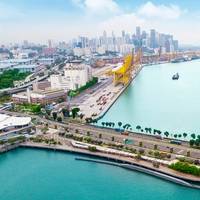
Singapore marine fuel sales fell to their lowest in 20 months in February, official data showed on Friday. Volumes at the world's top bunker hub totalled 4.15 million metric tons, down 7.1% month on month and sliding 8.1% year on year, data from Maritime and Port Authority of Singapore (MPA) showed.Weak demand has weighed on the market since the start of the year, dragging premiums down, trade sources said. Vessel calls for bunkering fell by 14.1% from the prior month to 3,075, hitting two-year lows, data showed.
Efen, Wilson Sons, Port of Açu partner on HVO testing in Brazil
This month, Wilson Sons received approval from ANP to conduct the first tests on using HVO (Hydrotreated Vegetable Oil) in the Brazilian maritime sector, with efen and Port of Açu as partners.To replace marine diesel oil, efen will import HVO, also known as renewable diesel or green diesel, to be tested on Wilson Sons' tugs in the Port of Açu, in São João da Barra (Rio de Janeiro). The liquid handling operation will be conducted at the Açu Liquid Bulk Terminal (TLA), owned by Vast Infraestrutura.“After the testing period, we expect to expand the distribution of HVO to Platform Supply Vessels (PSVs) and other offshore support vessels in the Port of Açu…
Record Year for Alternative-Fueled Vessel Order with LNG at Forefront, DNV Finds
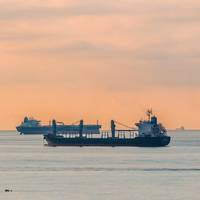
The 2024 represented an unprecedented year for maritime industry when it comes to orders for alternative-fueled vessels, driven mainly by liquefied natural gas (LNG), according to the latest data from DNV’s Alternative Fuels Insights (AFI) platform.A total of 515 alternative-fueled such ships were ordered, excluding LNG carriers, representing a 38% year-on-year increase compared to 2023, underscoring the industry's growing commitment to decarbonization.The growth in alternative…
Maritime Propulsion Choices Begin with Fuel, End with Politics
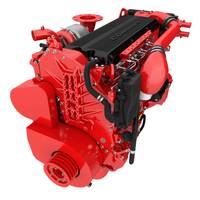
The maritime industry’s elusive quest to achieve so-called ‘zero’ emissions continues. Where it ends is not a one-size-fits-all discussion.The year-end maritime industry discussions tend to move away from global influence and back drift to national and domestic debates. As this happens, a positioning of a relatively small group of American owners and operators prepare for the upcoming business year and markets. The propulsion debate continues to be future fuels based upon sustainability and climate change.
A Well-to-Wake-Up Call
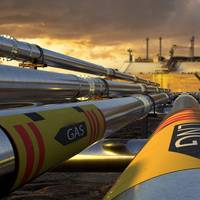
This week at MarineLink…An Australian Prime Minister once famously (infamously) said: “Life wasn’t meant to be easy.”He could have been talking about the maze of IMO and EU regulations relating to new fuels, especially the concept of well-to-wake emissions.It’s not enough to have a clean-burning engine or even an onboard carbon capture system. Well-to-take emissions, upstream and out of the control of ship operators, will have to be factored in.This week, MarineLink reported that a CMA-CGM vessel bunkered bio-LNG in Rotterdam…
N-O-S Focuses on Crew Comfort with CTV Newbuild
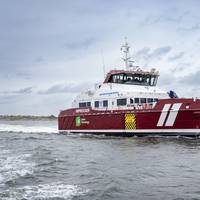
As global offshore markets evolve to create a more sustainable future, rising up to meet these challenges is Sweden-based Northern Offshore Services. Offshore engineers won’t be the only beneficiary – but they might be the most important. In August, Northern Offshore Services (N-O-S) unveiled its unique I-Class Crew Transfer Vessel (CTV), powered by the first commercial application of Volvo Penta’s IPS Professional Platform. In the cutting-edge IMPRESSER, N-O-S designed a flexible…
Navtor Touts "Compliance without Complexity"
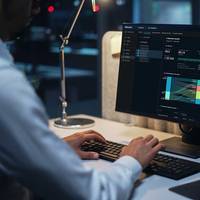
The regulatory landscape is about to get a whole lot more complicated, with the advent of FuelEU Maritime from January 1, 2025. This ambitious framework, focusing on the ‘well-to-wake’ GHG intensity of vessels trading within Europe, laughs in the face of traditional methods of calculating and tracking emissions, making Excel sheets strictly yesterday’s news. However, argues NAVTOR’s Director of Performance Jacob Clausen, there may be a simple way to voyage to compliance.The easy way to achieve FuelEU Maritime compliance for your fleet is simple.
Consort Bunkers, ClassNK, Yanmar and Taiko ink MOU on Alternative Fuel Bunkering
Consort Bunkers Pte. Ltd., ClassNK, Yanmar Asia (Singapore) Corporation Pte Ltd, and Taiko Asia Pacific Pte. Ltd. have signed a Memorandum of Understanding (MOU) to accelerate towards introduction of more bunkering ships capable of handling alternative fuels.Singapore-based Consort Bunkers placed an order with COSCO SHIPPING Heavy Industry (Guandong) Co.,Ltd. to construct four 7,999 DWT IMO Type 2 tankers, ready for biofuel and methanol bunkering. Incorporating their previous orders, a total of 13 biofuel/methanol bunkering tankers totaling over 90,000 DWT will join Consort’s fleet. ClassNK has been providing surveys and audits, Yanmar Asia has been providing main engines and generator engines…
Amogy Issued Feasibility Statement by Lloyd’s Register
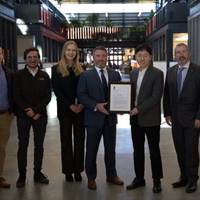
Ammonia power solutions company Amogy informs it has been awarded a feasibility statement by classification society Lloyd’s Register (LR).Amogy has developed an ammonia-to-electrical power system that splits, or “cracks,” liquid ammonia into its base elements of hydrogen and nitrogen, which then funnels the hydrogen into a fuel cell, generating power at five times the energy density of lithium batteries.The feasibility statement from LR serves as the official approval of Amogy’s Technology Qualification Plan (TQP)…


